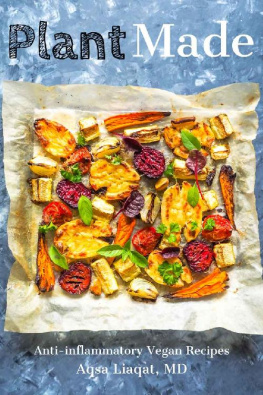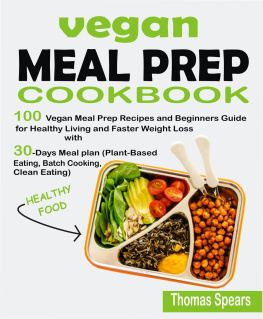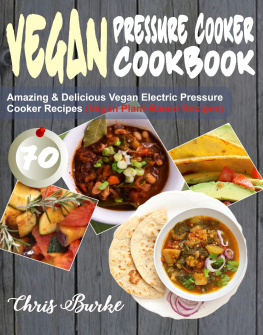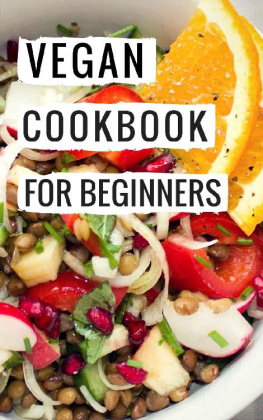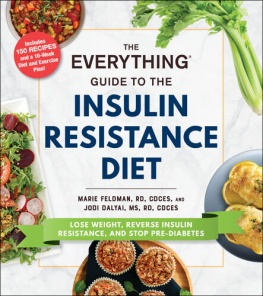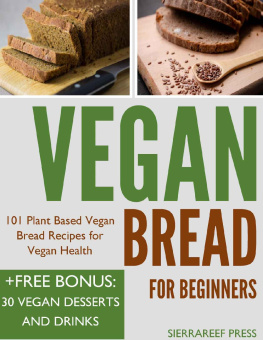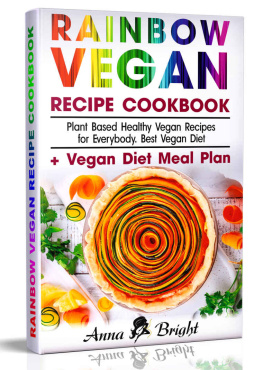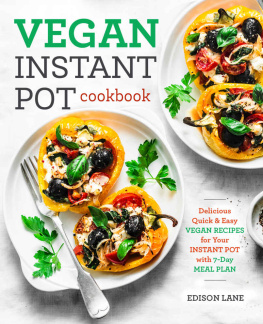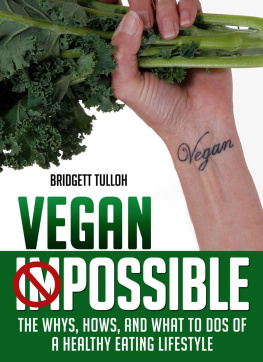
Table of contents
Introduction
Veganism is a trend that is fast gaining traction in recent times. Different people have different reasons why they are choosing to go vegan. For some, it might be ethical, while for others, it might be for health or environmental reasons. Either way, a lot of people are getting aboard the vegan train with each passing day.

With going vegan, however, there might come a lot of challenges. These are the problems of what to eat, and what not to eat. Another problem is how to turn the veggie food products into varieties of exciting dishes. The major challenge, however, is how to maintain a vegan diet without losing out on the essential macroelements and nutrients. To be fair, a diet based primarily on plant products may significantly increase ones risk of nutrient deficiencies if not well planned. There is, therefore, a need to balance the diet. The good news, however, is that there are vegan-friendly products to do just that.
This book will provide you with all you need to know about going vegan and how to enjoy it while you are at it. It also accounts for the essential nutrients that should be supplemented into your diet to keep it nutritionally balanced. It is a complete 30-day meal plan for your vegan journey, and the recipes are the best of the bunch.
What is a Vegan Diet?
A vegan diet is essentially one devoid of any animal products, be it meat, dairy, eggs, or even honey. The principal target of getting on a vegan diet is to eliminate animal-based food products and consume only plant-made ones.

Health Benefits of Vegan Diets
Vegan diets have numerous health advantages, as mentioned earlier. These include;
- Heart Health Improvement: Vegan diets have been linked to a healthier heart. Foods like vegetables, fresh fruits, fiber, and legumes have all been linked to a lower risk of heart disease. In well-planned vegan diets, all these are eaten in high quantity, thereby improving the health of the heart.
Vegans have been shown through observational studies, to have a lower risk of heart disease. They are 42% less likely to have heart issues, and 75% less likely to develop high blood pressure.
- Improved Control of Blood Sugar and Kidney Function: Vegan diets are particularly beneficial in type 2 diabetes and people with reduced kidney function. With most vegan diets, there is reduced sugar in the blood and higher insulin sensitivity. This results in a 50-78% lower risk of the incidence of type 2 diabetes.
Further studies also indicate that diabetics who use plant proteins instead of animal proteins significantly reduce their risk of reduced kidney function.
- Increased Loss of Excess Weight: By mere observation, vegans tend to be generally thinner with lower Body Mass Indexes (BMI), compared to non-vegans. Further randomized control trials indicate that vegan diets are more suitable for weight loss programs and are more effective.
- They are Higher in Certain Nutrients Content: Vegan diets substitute a lot of animal-based products for plant made ones. They, therefore, tend to contain more beneficial plant-based nutrients. They provide more antioxidants, folate, fiber, magnesium, potassium, vitamins A, C, and E, etc.
However, poorly planned vegan diets will end up being deficient in essential nutrients like iron, vitamin B12, folic acid, and so on.
- Protection against Certain Cancers: Vegan diet can also be beneficial in the prevention of certain cancer diseases.
Studies indicate a 9-18% reduced risk of colorectal cancer through regular consumption of legumes. Also, soy products, which are generally consumed more by vegans help in protecting against breast cancer. Typically, vegans have a 15% lower risk of developing cancer because they eat more vegetables, fruits, and legumes than non-vegans. Avoiding certain animal products, therefore, may help in reducing the risk of breast, colon, and prostate cancer.
- Reduction in Pain from Arthritis: Vegan diets have been shown to have positive effects on various forms of arthritis. Most arthritic patients reported improved functionality and reduced symptoms of arthritis when they switched to a vegan diet. There is often an improvement in pain symptoms, morning stiffness, and joint swelling.
While all these health benefits of a vegan diet are being considered, it is pertinent to note that most of the studies about them were mainly observational. The underlying reason why they are precisely beneficial for each health condition is mostly unknown and would require more research.
Types of Vegan Diets

Vegan diets come in different varieties. The most popular ones include;
- Vegan Raw-food Diet: This is a vegan diet that is based on raw food like vegetables, fruits, seeds, or nuts. It may also generally consist of plant foods cooked below 48C ( 118F).
- Vegan Low-fat, Raw-food Diet: This vegan diet is centered on low-fat greens and raw fruits. At the same time, it limits fat-rich foods like avocados and nuts. It is also called the fruitarian diet.
- Vegan Whole-food Diet: This vegan diet consists of a wide variety of whole plant foods like whole grains, vegetables, fruits, legumes, seeds, and nuts. It tends to stay away from processed food as much as possible.
- Vegan Starch Diet: This is a high-carb and low-fat vegan diet that is similar to the vegan low-fat, raw-food diet. The only difference is its focus on cooked starchy plant foods like corn, rice, and potatoes instead of fruits.
- Vegan Alternated Raw and Cooked Diets: This diet focuses on the consumption of raw food until around 4, then alternating with a cooked plant-based variety. It is a combination of the vegan low-fat, raw-food diet, and the vegan starch diet.
- Vegan Junk-food Diet: This vegan diet relies heavily on vegan desserts, fries, mock cheeses and meats, and other processed vegan foods. They mainly lack in whole plant foods.
What to Eat on a Vegan Diet
When on a vegan diet, you should substitute animal-based food product with plant-based ones. Examples of these plant-based products are:

- Legumes: Legumes are highly beneficial plant foods and good sources of many essential compounds and nutrients. Legumes include lentils, peas, and beans, which can be fermented and appropriately cooked to increase nutrient absorption.
- Seeds: Most plant seeds are good sources of beneficial omega-3 fatty acids and proteins. Examples are chia, hemp, and flaxseeds.
- Nuts: Nuts are excellent sources of magnesium, selenium, iron, zinc, fiber, and vitamin E. These minerals are mainly found in substantial quantities in untoasted nuts and nut butter.
- Fruits and Vegetables: Adequate consumption of vegetables and fruits will significantly improve your nutrient intake. Most leafy greens like spinach, kale, and mustard greens contain high quantities of iron and calcium.
- Whole Grains and Cereals: Cereals and whole grains are excellent sources of fiber, vitamins, iron, complex carbs, and other minerals. Whole grain examples include brown rice, buckwheat, bulgur (cracked wheat), oatmeal, millet, and barley.
Next page






